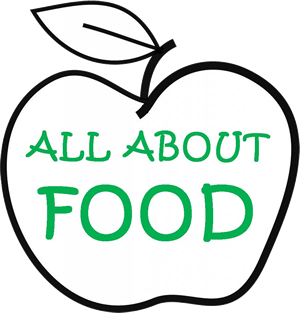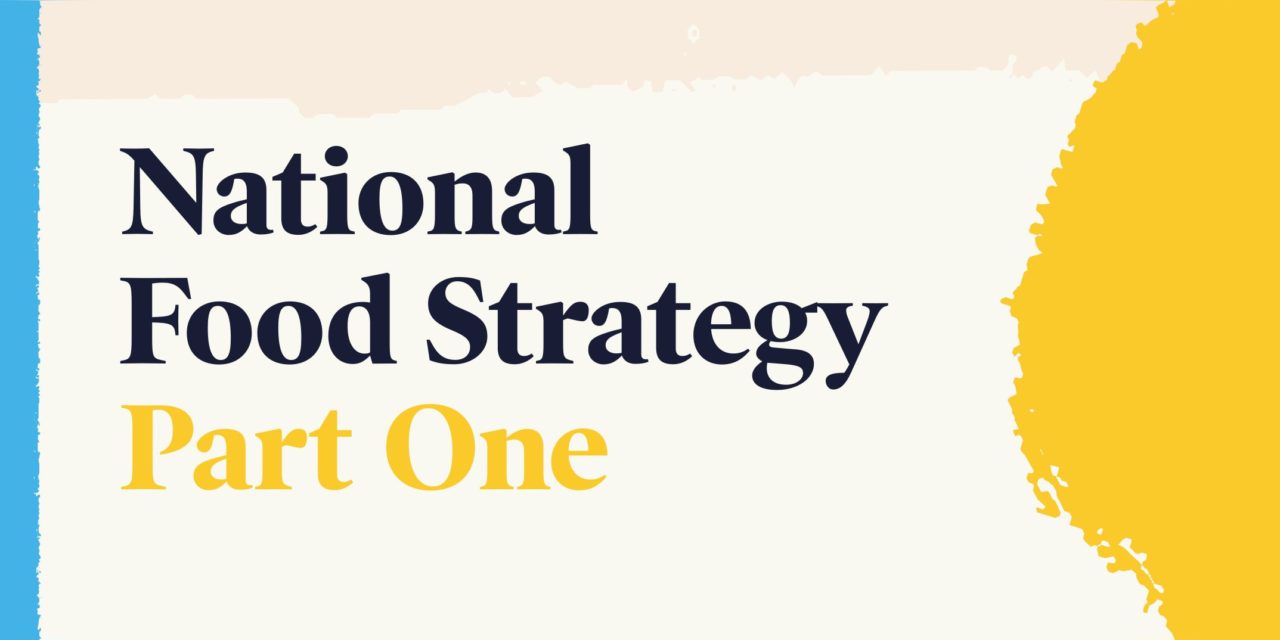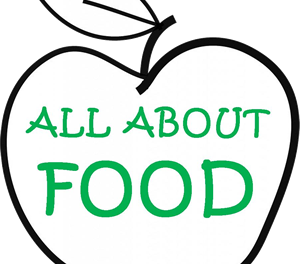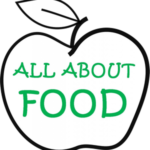If it is considered appropriate to support children in need by providing a free school meal during term time then this pandemic has emphasised the need to create a provision at other times and to widen the scope.
Henry Dimbleby published Part One of the National Food Strategy. The aim of this Independent Review, commissioned by the Government was – and still is – to rethink how the whole food system should work, from farm to fork.
Part One contains urgent recommendations to support this country through the turbulence caused by the COVID-19 pandemic, and to prepare for the end of the EU exit transition period on 31 December 2020.
Our food system has just endured its biggest stress test since the Second World War. As COVID-19 swept through the UK, the entire machinery of supply and distribution had to be recalibrated, fast. The fact that, after a wobbly start, there were no serious food shortages is a testament to the flexibility and entrepreneurialism of so many food businesses, and the resilience of the system as a whole.
In October 2020 he published further in depth evidence and analysis which underpins the recommendations here
His recommendations cover making sure a generation of our most disadvantaged children do not get left behind.
Eating well in childhood is the very foundation stone of equality of opportunity. It is essential for both physical and mental growth. A poorly nourished child will struggle to concentrate at school. An obese child is extremely likely to become an obese adult, with the lifetime of health problems that entails. It is a peculiarity of the modern food system that the poorest sectors of society are more likely to suffer from both hunger and obesity. In the post-lockdown recession, many more families will struggle to feed themselves adequately. A Government that is serious about “levelling up” must ensure that all children get the nutrition they need.
Recommendation 1
Expand eligibility for the Free School Meal scheme to include every child (up to the age of 16) from a household where the parent or guardian is in receipt of Universal Credit or equivalent benefits.
The impact of COVID-19 on some families has been acute, with a clear rise in food insecurity. In the first two weeks of lockdown, food bank use amongst families with children doubled compared to March 2019.
Children who are hungry at school struggle to concentrate, perform poorly, and have worse attendance records. More generally, children who experience food insecurity suffer worse physical and mental health outcomes. This is both an acute and a long-term issue: food insecurity undermines any serious prospect of improving social equality.
Only 1% of packed lunches meet the nutritional standards of a school meal. A hot, freshly-cooked school lunch is, for some children, the only proper meal in the day, providing a nutritional safety net for those at greatest risk of hunger or poor diet.
Free school meals are currently provided to all children in the first three years of school, under the national Universal Infant Free School Meals (UIFSM) scheme. After this point, only children from very low-income households are eligible for Free School Meals (those with an annual income of £7,400 , or less, before benefits).
This threshold is much too low. Many of the families on Universal Credit who currently do not qualify for Free School Meals fall well below the government’s own threshold for poverty. Ensuring the health and development of our children should be a priority.
Recommendation 2
Extend the Holiday Activity and Food Programme to all areas in England, so that summer holiday support is available to all children in receipt of Free School Meals.
Summer holidays are a particularly hard time for households experiencing food insecurity. An estimated 3 million children are at risk of hunger in the school holidays, and data from food banks shows the need for emergency supplies accelerates over the summer. This issue has been exacerbated by the economic fall-out from COVID-19.
During term time, teachers make valiant efforts to ensure equality of opportunity for their pupils. During the holidays, much of that work unravels.
Evidence suggests that children from disadvantaged families are less likely to access organised out-of school activities, more likely to experience social isolation, and more likely to experience “unhealthy” holidays in terms of nutrition and physical health.
Conversely, providing enrichment activities and healthy food over the holidays can help pupils return to school engaged, invigorated and ready to learn. Plugging the summer holiday gap will be essential if the Government is to fulfil its promise of “levelling up”.
The Holiday Activities and Food Programme – which has been running since 2018 – provides healthy meals and fun activities for disadvantaged children. This summer the Government is funding the delivery of the programme by 10 coordinators (a mixture of Local Authorities and voluntary organisations) in 17 Local Authority areas, at a cost of £9 million. The aim is to provide a programme of activity for all children entitled to Free School Meals in these Local Authority areas, for four hours a day, four days a week, for four weeks of the summer holidays.
Children on these holiday schemes receive at least one meal a day which meets the school food standards. The programmes include an element of nutritional education, to improve children’s knowledge and awareness of healthy food, as well as training and advice sessions for families and carers on how to source, prepare and cook nutritious, low-cost food. They also provide activities to help children develop new skills and knowledge and get plenty of exercise.
Recommendation 3.
Increase the value of Healthy Start vouchers to £4.25 per week, and expand the scheme to every pregnant woman and to all households with children under 4 where a parent or guardian is in receipt of Universal Credit or equivalent benefits.
Under this recommendation, he estimates an additional 290,000 pregnant women and children under the age of 4 will benefit, taking the total number of beneficiaries to 540,000. This is estimated to cost an additional £110 million a year, with a supporting communications campaign costing £5 million.
Recommendation 4.
Extend the work of the Food to the Vulnerable Ministerial Task Force for a further 12 months up until July 2021.
It should collect, assess and monitor data on the number of people suffering from food insecurity at any time, and agree cross-departmental actions, where necessary, to support those who cannot access or afford food.
In the report there is a piece by a member of the Advisory panel. There are issues identified which need to be answered locally. Daisy Stemple – a member of Henry Dimbleby’ s Advisory Panel – explains with characteristic eloquence the multiple pressures that shape the food choices of people living in poverty.
Daisy’s Experience – 2019
“I think one of the main things I’d like people to know is that when you’re poor your food budget has to be flexible. It’s not always a priority. My girls can’t walk around with shoes that don’t fit, or no coat in the cold weather, but they can eat beans or egg on toast multiple times a week. So, if there is an unexpected expense like shoes, or an unusually high heating bill, my food budget will be the first to take a cut.
“It’s this that makes school dinners so important to me. If you know your child has had a big, healthy meal at school it takes the pressure off at home. Which is why during school holidays my food costs increase dramatically. This summer I was really lucky to have the Summer Kitchen at my girls’ school. Three evenings a week we could go and eat for free in the school canteen and sometimes there would be extra fruit or veg or tins to take home. This was a huge help to us, and the girls really enjoyed it as there was sports equipment and craft stuff out in the school field at the same time.
“In September I went on to Universal Credit, which meant for 5 weeks I had no income at all. Having the Summer Kitchen in August meant I could save up as much as possible and give us a bit of a cushion for when September hit – with two lots of uniform to buy! Another point I’d like to get across is the fact that it IS cheaper and easier to eat less healthy food. I work three jobs, and cooking from scratch around them is very hard indeed. I also have a TINY kitchen, so I don’t have the storage space to bulk buy or batch cook. Healthy Start vouchers, which were fantastic, ended when each of my girls turned four, so I don’t have as much to spend on fresh fruit and veg and don’t have the freezer space for much frozen. But it’s true that these are all choices I make, I could (and do) cook from scratch if I really put the effort in every day. It’s just more effort than more well-off people need to make.
“It’s not just fruit and veg though. To illustrate my point, I’ll give you some examples. Peanut butter with palm oil and sugar added is a third of the price of the good stuff that’s just squashed peanuts. Yoghurts with sweeteners are a quarter of the price of organic no added sugar ones.
White bread that has an ingredient list full of chemicals is a quarter of the price of a store baked wholemeal loaf. A bottle of squash is cheaper than juice. I could go on and on.
“Feeding my kids nutritious food is such an enormous priority for me and most of the mums I know who are in the same position. I would rather keep my heating turned off and go without three meals a day myself if it means buying better quality food for them, but I just think there must be a better way. I live in an area surrounded by farms and the sea; why is it cheaper and easier for me to feed my family powdered mash and sausages with a 5% meat content (we’re actually vegetarian, but looking at my friend’s shopping was an eye opener) than local veg and decent food? I know a sack of potatoes from my local farm shop is cheap and good quality, but I can’t get there without a car.
“One last point is that an awful lot of the women my age I know don’t have a clue how to cook. This is an area of multi-generational poverty. When I was little, I didn’t know any adults who weren’t on the dole. The majority of my peers grew up eating crap, or very simply indeed. We’ve lost the skills our nans had. Women like me don’t make toad in the hole anymore because Yorkshire pudding is a cheap way to bulk out a dinner. We buy frozen Aunt Bessie ones cos they’re £1 in Iceland. The only reason I’m any different is because my mum’s a hippy and I know how to cook.”








Recent Comments